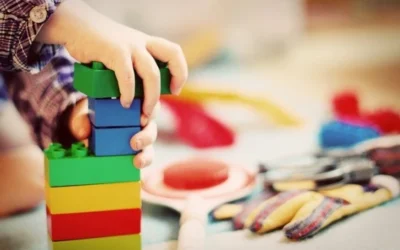None of us were raised by perfect parents, or grew up in a perfect home. Childhood wounds follow us into our adulthood. The things that happen to us when we are young affect the way our brains develop. No amount of shaming ourselves for our feelings or actions will repair the damage that we experienced as children. That’s the bad news. The good news is, we don’t have to live in these stuck places. Through counseling, there is hope for significant change.
When we as young children experienced difficulties, we did not have the cognitive abilities to describe in words what we were feeling. These young parts of us held onto the pain we experienced. In order to protect ourselves from feeling this pain again, we developed protective mechanisms that helped us cope with our pain. Sometimes, these coping mechanisms cause us difficulties in our adult lives.
A Case Study of Mary
To better understand how this happens, lets look at a fictitious person named Mary. When Mary was born, her mother had severe depression and used alcohol to try to cope with it. Mary’s father worked long hours, and Mary was left with her mother during the day. Sometimes her mother was able to give Mary the attention she needed. Other times, her mother would ignore her for hours, leaving her hungry and alone in her crib. Because Mary was too young to understand that her mother had adult problems, Mary assumed that she was the problem. After all, if her mother (who seemed perfect in her eyes) ignored her, then Mary must be worthless.
When Mary went to school, her classmates picked up on her feeling of worthlessness. Sensing her weakness, they bullied her. Mary hated being bullied, so she tried very hard to be perfect so that others would find nothing with which to criticize her.
As Mary grew up and entered college, her perfectionism made her believe that she had to get straight A’s in order to be worthy. That perfectionism caused anxiety before every test, forcing her to study all night. She began using cocaine to help her stay awake, which lead to a cocaine addiction. Mary’s perfectionism, the anxiety it caused and even her cocaine addiction were all trying to protect her from feeling worthless. Unfortunately, these protective measures ended up causing her to feel even more worthless.
How Can Counseling Help?
Here at Restored Hope Counseling, we help our clients understand the protective parts of themselves that sometimes take control of their lives using a counseling modality called Internal Family Systems. Once our clients learn to appreciate the good intention of their protective mechanisms, these strong parts begin to feel valued. When they are valued and understood, these protective parts begin to realize they don’t need to perform their self-imposed roles so strongly, and they begin to soften. After that, we can work with the younger hurt parts to begin to heal them from the pain they carry.
Once Mary’s young wounded part no longer feels so worthless, she can begin to give up her need to be perfect. This reduces her anxiety and helps her to give up her addiction to cocaine. Once Mary’s protective and wounded parts are no longer running her life, Mary can then make conscious decisions about how she wants to live.
Does Mary’s Story Sound Familiar?
Have you ever wondered why you do some of the things you do? Does it feel as though you are sometimes your own worst enemy? Do you know how you would like to behave, but often feel unable to do it? You aren’t alone, we all struggle in this way.
If you would like to be able to understand why you do the things you do, and make real strides toward changing your behavior and healing your past, give us a call. We would love to come alongside you as you make changes for a more fulfilling life. Contact us today.




